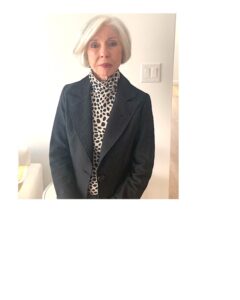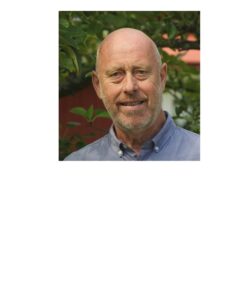Julianne Appel-Opper, Zeynep Catay, Ruella Frank, and Helena Vissing
HOW DOES EARLY DEVELOPMENT AFFECT THE EMBODIMENT OF THE CLINICAL ENCOUNTER?
with Moderators Doris Brothers, PhD, and Jon Sletvold, PsyD
Julianne Appel-Opper, Zeynep Catay, PhD, Ruella Frank, PhD, and Helena Vissing, PsyD
with Moderators Doris Brothers, PhD, and Jon Sletvold, PsyD
HOW DOES EARLY DEVELOPMENT AFFECT THE EMBODIMENT OF THE CLINICAL ENCOUNTER?
SATURDAY, JUNE 1ST
12 Noon – 2:00 PM/Eastern Daylight Time
A multi-view discussion followed by audience interaction. Presented in collaboration with The Wilhelm Reich Center for the Study of Embodiment.
2 CONTINUING EDUCATION CREDITS ARE AVAILABLE. For CE Credit information, click here
ABOUT THIS EVENT
There can be little doubt that babies communicate with their caregivers through body–to–body interactions. However, there are many ways to understand how these early interactions affect the embodiment of the therapeutic exchange. Our speakers offer a variety of perspectives on the crucial importance of understanding the link between embodiment in early life and the treatment situation.
This event brings together clinicians who hold a variety of views on the subject. The four speakers will answer questions posed by our two Moderators, who are also Co-Directors of the Wilhelm Reich Center for the Study of Embodiment. After engaging in dialogue together, members of our online audience will be invited to join the discussion.
ABOUT THE WILHELM REICH CENTER FOR THE STUDY OF EMBODIMENT
Inspired by the pioneering work of Wilhelm Reich and encouraged by the recent surge of interest in embodiment among clinicians, co-Directors Drs. Doris Brothers and Jon Sletvold have founded the Center. With it, they are introducing an online forum for dialogues about the ways in which embodiment affects the theory and practice of psychoanalysis and psychotherapy.
A wide range of approaches to embodiment have emerged in the last two decades that have led them to believe that a “turn toward embodiment” is underway. In the interest of furthering this turn they are offering a format that differs from the usual at psychoanalytic meetings. Rather than featuring a paper presenting a specific theorist or clinician followed by discussions, they intend that each event will center around a specific topic. Speakers from around the world, each of whom employs a different perspective on embodiment, will be invited to participate in a roundtable conversation of the topic. Afterward, online participants will be encouraged to join the conversation.
Learn more about The Wilhelm Reich Center for the Study of Embodiment
COSTS
Professionals $45
Candidates and Students $25
ABOUT THE SPEAKERS
Julianne Appel-Opper is a psychologist, psychotherapist, supervisor and trainer with 35 years of clinical experience. She offers online therapy and supervision internationally from her private practice in Berlin. Her approach of ‘Relational Living Body Psychotherapy’ focuses on inter-bodily communication and ways of developing embodied interventions. She has developed and offered international training programs since 2005 and has presented her work in articles, book chapters, interviews, invited seminars/webinars and lectures. Her publications include: English smiles, Italian shoulders and a German therapist (International Body Psychotherapy Journal, 2019), Relational Living Body Psychotherapy: From physical resonances to embodied interventions or experiments (USA Body Psychotherapy Journal, 2010), and Two living bodies online, which will be published in 2024. Julianne is an Editorial Board Member of the European Journal for Qualitative Research in Psychotherapy, a founding member of IG-FEST, International Gestalt Therapy Study Group on Field-Emergent Self and Therapy. Her website is: www.thelivingbody.net
Zeynep Catay, PhD, is a Clinical Psychologist in private practice in New York City working with adults and children. She is also a Dance/Movement Therapist and practitioner of somatic experiencing method. She was a faculty member at the Psychology Department of Istanbul Bilgi University between the years of 2005 and 2019. Dr. Catay is currently a part-time instructor and clinical supervisor at the Clinical Psychology PhD program of the New School for Social Research. She has been a visiting scholar at the Center for Attachment Research at the New School and is currently directing a study in collaboration with the Child Psychotherapy Process Research Lab at Istanbul Bilgi University on the therapist’s ability to coordinate nonverbal communication in child psychotherapy. Her current research and writing interests focus on nonverbal bodily dynamics and embodiment in psychotherapy and somatic countertransference. She is also a candidate at the NYU post-doctoral program for psychoanalysis.
Ruella Frank, PhD, is Founder and Director of the Center for Somatic Studies, faculty at the New York Institute for Gestalt Therapy, adjunct faculty at Gestalt Institute of Toronto, and guest faculty at Gestalt Associates for Psychotherapy. Ruella teaches throughout the United States, Europe, Eurasia, Mexico, South America and Canada. She is author of Body of Awareness: A Somatic and Developmental Approach to Psychotherapy, (2001, GestaltPress, available in 4 languages), co-author of The First Year and the Rest of Your Life: Movement, Development and Psychotherapeutic Change (2010, Routledge Press, available in 3 languages), and author of The Bodily Roots of Experience in Psychotherapy (2022, Routledge Press, available in 7 languages). Her video Introduction to Developmental Somatic Psychotherapy, is available in three languages. www.somaticstudies.com
Helena Vissing, PsyD, is a Licensed Psychologist certified in Perinatal Mental Health (PMH-C) in private practice in California. She practices psychodynamic and trauma-informed somatic psychotherapy as a Somatic Experiencing Practitioner. Dr. Vissing is experienced as Adjunct faculty at several graduate institutions including Reiss-Davis Graduate School, Antioch University, and The Chicago School of Professional Psychology. She has published book chapters and articles on the topic of the psychology of motherhood. Her book on her somatic and psychodynamic model for the treatment of trauma in the Perinatal Period is titled, Somatic Maternal Healing: Psychodynamic and Somatic Trauma Treatment for Perinatal Mental Health (Routledge). Dr. Vissing has trained at the C.G. Jung Institute of Los Angeles and the Saturday Center for Psychotherapy. She also hosts the New Books in Psychoanalysis podcast and is on the editorial board of the International Journal of Body Psychotherapy.
ABOUT THE MODERATORS/CO-DIRECTORS OF THE WILHELM REICH CENTER FOR THE STUDY OF EMBODIMENT
 Doris Brothers, PhD, is a co-founder and faculty member of the Training and Research in Intersubjective Self Psychology Foundation (TRISP). She was co-editor with Roger Frie of Psychoanalysis, Self and Context from 2015-2019 and is an associate editor of Psychoanalytic Inquiry. She serves on the council of the International Association of Psychoanalytic Self Psychology (IAPSP). Doris has published many journal articles and book chapters as well as four books. Her latest book, written with Jon Sletvold is entitled A New Vision of Psychoanalytic Theory, Practice and Supervision: TALKING BODIES. Her earlier books are: Toward a Psychology of Uncertainty: Trauma-Centered Psychoanalysis (2008), Falling Backwards: An Exploration of Trust and Self-Experience (1995), and with Richard Ulman, The Shattered Self: A Psychoanalytic Study of Trauma (1988). She has presented her work internationally and leads supervision/study groups with Jon Sletvold. She sees patients in private practice in New York and Oslo.
Doris Brothers, PhD, is a co-founder and faculty member of the Training and Research in Intersubjective Self Psychology Foundation (TRISP). She was co-editor with Roger Frie of Psychoanalysis, Self and Context from 2015-2019 and is an associate editor of Psychoanalytic Inquiry. She serves on the council of the International Association of Psychoanalytic Self Psychology (IAPSP). Doris has published many journal articles and book chapters as well as four books. Her latest book, written with Jon Sletvold is entitled A New Vision of Psychoanalytic Theory, Practice and Supervision: TALKING BODIES. Her earlier books are: Toward a Psychology of Uncertainty: Trauma-Centered Psychoanalysis (2008), Falling Backwards: An Exploration of Trust and Self-Experience (1995), and with Richard Ulman, The Shattered Self: A Psychoanalytic Study of Trauma (1988). She has presented her work internationally and leads supervision/study groups with Jon Sletvold. She sees patients in private practice in New York and Oslo.
 Jon Sletvold, PsyD, is founding board director and faculty member of the Norwegian Character Analytic Institute. He has written articles and book chapters on embodiment in psychoanalytic theory, practice, and training. He is the editor of four books and the author of The Embodied Analyst: From Freud and Reich to Relationality, which won the Gradiva Award in 2015. In 2019 he wrote From Muscular Armor to Bodies in Dialogue with Per Harbitz. His latest book, written with Doris Brothers is A New Vision of Psychoanalytic Theory, Practice and Supervision: TALKING BODIES. Dr. Sletvold has presented his work internationally and co-leads online supervision/study groups on embodiment in Europe, North America and China with Doris Brothers. He practices in Oslo and New York.
Jon Sletvold, PsyD, is founding board director and faculty member of the Norwegian Character Analytic Institute. He has written articles and book chapters on embodiment in psychoanalytic theory, practice, and training. He is the editor of four books and the author of The Embodied Analyst: From Freud and Reich to Relationality, which won the Gradiva Award in 2015. In 2019 he wrote From Muscular Armor to Bodies in Dialogue with Per Harbitz. His latest book, written with Doris Brothers is A New Vision of Psychoanalytic Theory, Practice and Supervision: TALKING BODIES. Dr. Sletvold has presented his work internationally and co-leads online supervision/study groups on embodiment in Europe, North America and China with Doris Brothers. He practices in Oslo and New York.
William Alanson White Institute of Psychiatry, Psychoanalysis & Psychology 20 West 74th Street, New York, NY 10023 | (212) 873-0725